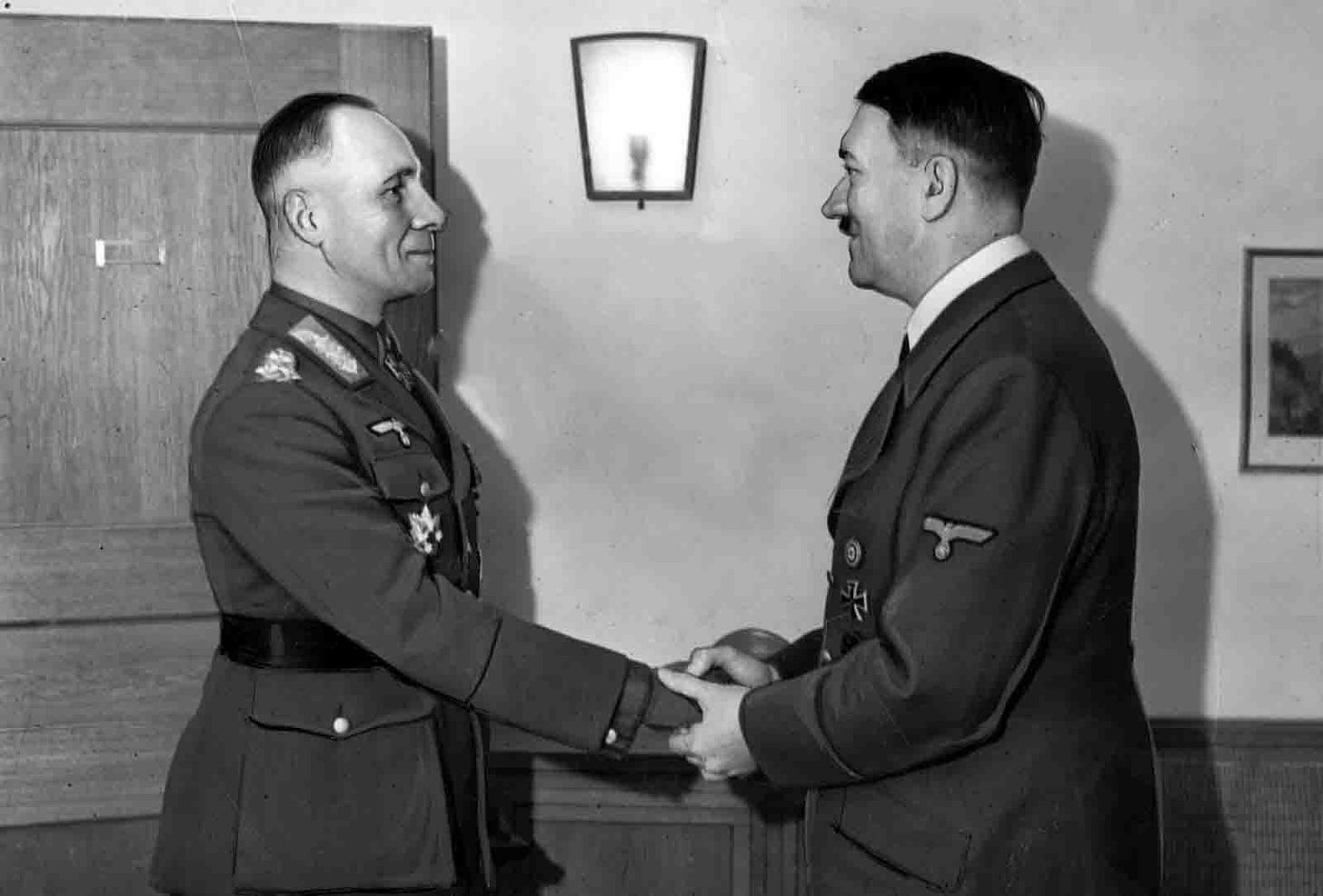The death of Rommel
14th October 1944: Any form of disloyalty to Hitler has only one consequence - but the Nazis are adept at stage managing a death sentence

General, later Field Marshal, Erwin Rommel had achieved worldwide fame as the 'Desert Fox' after the Wehrmacht 'Afrika Korps' were sent to save the Italian forces on the brink of defeat in North Africa in 1941.


Rommel had then taken a leading role in augmenting the Atlantic Wall across the coast occupied France. He had played his part in the Normandy battle against the D-Day landings before being seriously wounded in an Allied air strike on 17th July 1944.

Rommel had long been outspoken, and Nazi spies were well aware that he could be critical of Hitler. The Wehrmacht members of the 20th July bomb plot against Hitler saw him as a potential German leader if they succeeded in overthrowing the Nazi regime. When they approached Rommel to support them, he had been sympathetic. Like many senior members of the Wehrmacht, he could see how the war was going. Nevertheless, he had opposed the assassination of Hitler, believing that this would lead to civil war.
‘ “In view of my services in Africa," ' he quoted sarcastically, 'I am to have the chance of dying by poison.’



